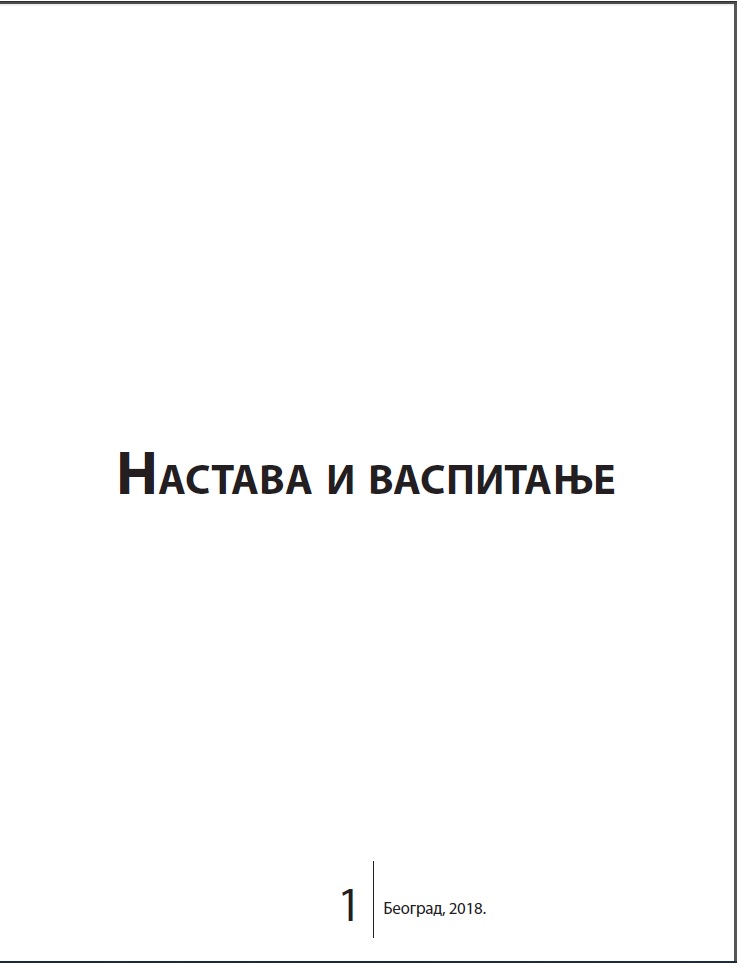ИНКЛУЗИВНО ОБРАЗОВАЊЕ ИЗ ПЕРСПЕКТИВЕ НАСТАВНИКА: УЛОГЕ, КОМПЕТЕНЦИЈЕ И БАРИЈЕРЕ
INCLUSIVE EDUCATION FROM THE TEACHER’S PERSPECTIVE: ROLES, COMPETENCES AND BARRIERS
Author(s): Olivera Knežević Florić, Stefan Ninković, Nataša TančićSubject(s): Education
Published by: Педагошко друштво Србије
Keywords: inclusive education;teachers’ perceptions; roles; competences; barriers
Summary/Abstract: The understanding of the teacher’s perspective is an important prerequisite for the functional implementation of inclusive education in schools. The research presented in this paper aimed to explore teachers’ perceptions of their roles in educating students with developmental disabilities, alongside the roles of school psychologists and education experts, as well as their perceptions of their own competencies for inclusive education, and of possible barriers to implementing inclusive education. The sample consisted of 102 teachers in regular primary schools, 60.8% of whom reported having professional experience with working with children with developmental disabilities. The questionnaire used in the research was developed for this purpose, and its properties were evaluated and subjected to exploratory factor analysis. The findings indicate that teachers believe school psychologists and education experts play a primary role in implementing certain aspects of inclusive education. Teachers’ responses also indicate a general sense of lacking the necessary competencies for working with children with developmental disabilities. The greatest barriers to inclusive education identified by teachers are their own initial education and negative school culture. Finally, the research found no significant correlation between teachers’ experience of working with students with developmental disabilities and their years of service, on the one hand, and their perception of various aspects of inclusive education, on the other. The concluding discussion emphasizes the need for teachers to accept their roles and to feel competent to work with students with developmental disabilities. The implications of the research relate to the directions in which teachers’ initial education and professional training for inclusive education can be improved.
Journal: Nastava i vaspitanje
- Issue Year: 67/2018
- Issue No: 1
- Page Range: 7-22
- Page Count: 16
- Language: Serbian

